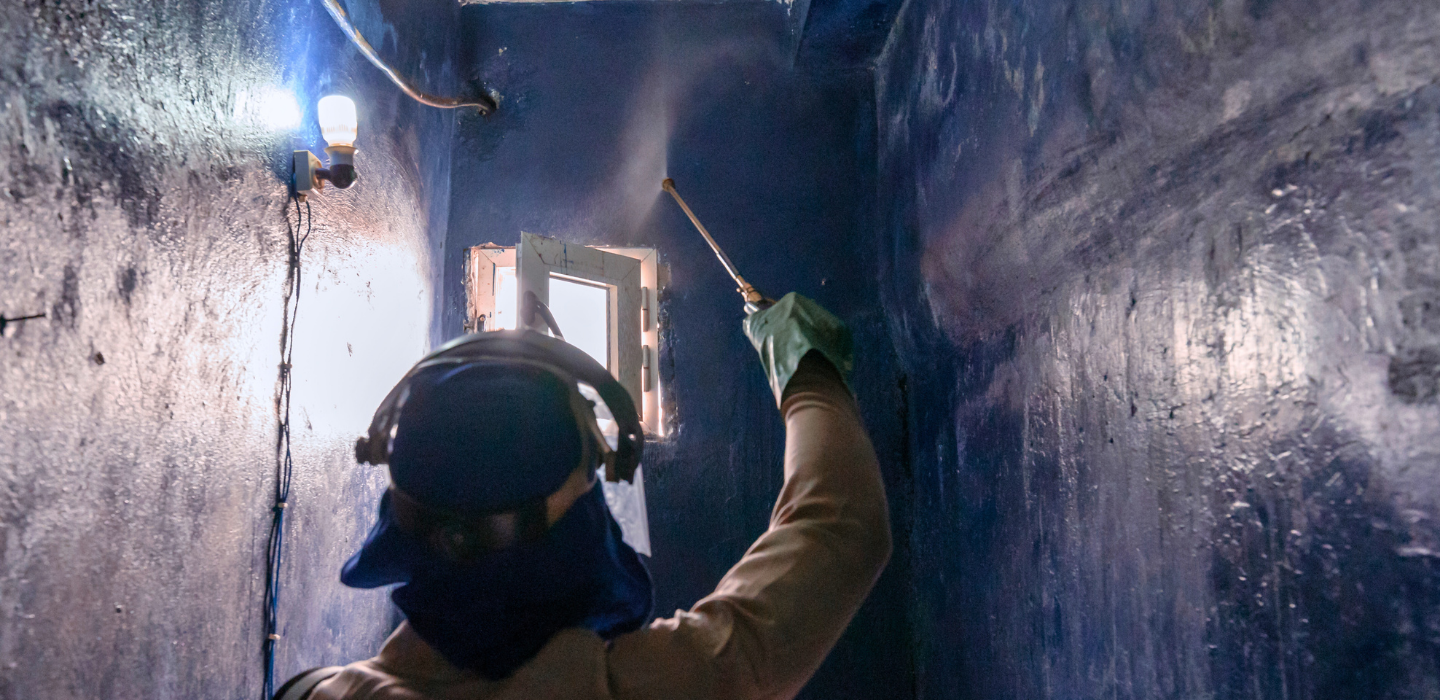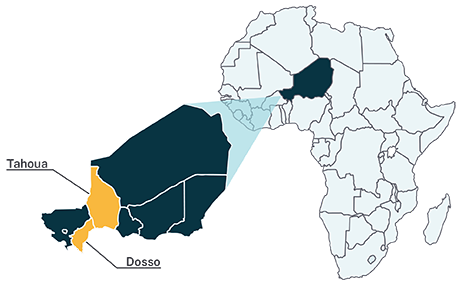MCD Global Health is committed to preventing malaria transmission with innovative and comprehensive strategies. We accomplish this by protecting people and managing mosquito populations.
Managing Mosquito Populations
Integrated Vector Control
We implement integrated vector control that includes indoor residual spraying (IRS), larval source management (LSM), and provision of bed nets to the population. With IRS, our team targets a high proportion of homes on Bioko Island, Equatorial Guinea, in an attempt to kill vectors and prevent transmission.
In addition, we also attempt to kill mosquitoes at the source by tackling their breeding sites through LSM. On Bioko Island, for example, we have made LSM more comprehensive by using a combination of larviciding (i.e., killing larvae at aquatic habitats) and more permanent strategies, such as habitat manipulation and modification.
By also raising awareness among community members on the need to reduce breeding sites, they can contribute to preventing transmission in their own backyards, such as emptying outside containers with water. We are undertaking LSM in the main urban areas of Bioko Island, both in and around the capital, where breeding sites are easier to find.
Protecting People and Communities
Behavior Change Communication
By designing and implementing behavior change communication (BCC) policies, strategies, and interventions, our teams are able to support malaria case management and prevention goals within malaria control projects.
Preventing Malaria in Pregnancy
We assist countries and communities in improving how they provide care to women who are pregnant. By strengthening intermittent preventive therapy in pregnancy (IPTp) efforts as part of antenatal and prenatal care services, the number of women who are pregnant and have taken at least three doses of malaria preventive therapy by the time they deliver increases.
In countries like Equatorial Guinea and Gabon, MCD has orchestrated the delivery of supplies for malaria in pregnancy prevention, such as sulfadoxine-pyrimethamine tablets and bed nets. We have worked with health care providers by assisting them with updated IPTp guidelines, so they can provide evidence-based care to women.
Our teams have integrated malaria and antenatal services, such as surveying household-level malaria interventions during routine antenatal visits. By surveying women who are pregnant on key malaria prevention indicators during their first antenatal and prenatal care visit, it increases the likelihood that they will use bed nets and decreases the number of positive cases among children under 5.






